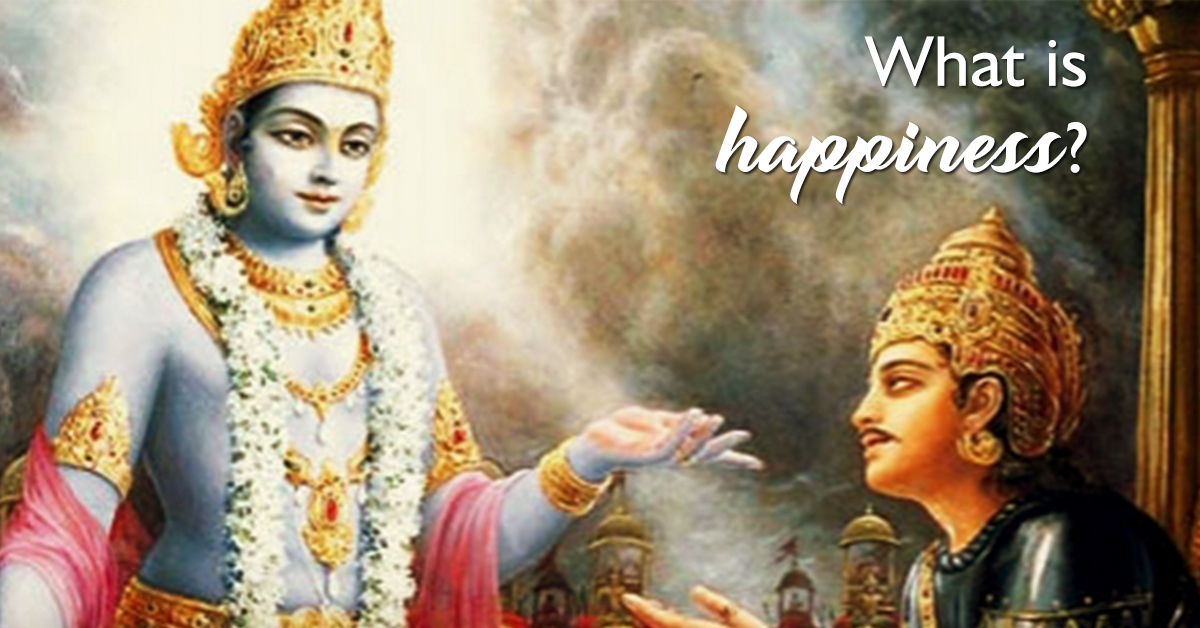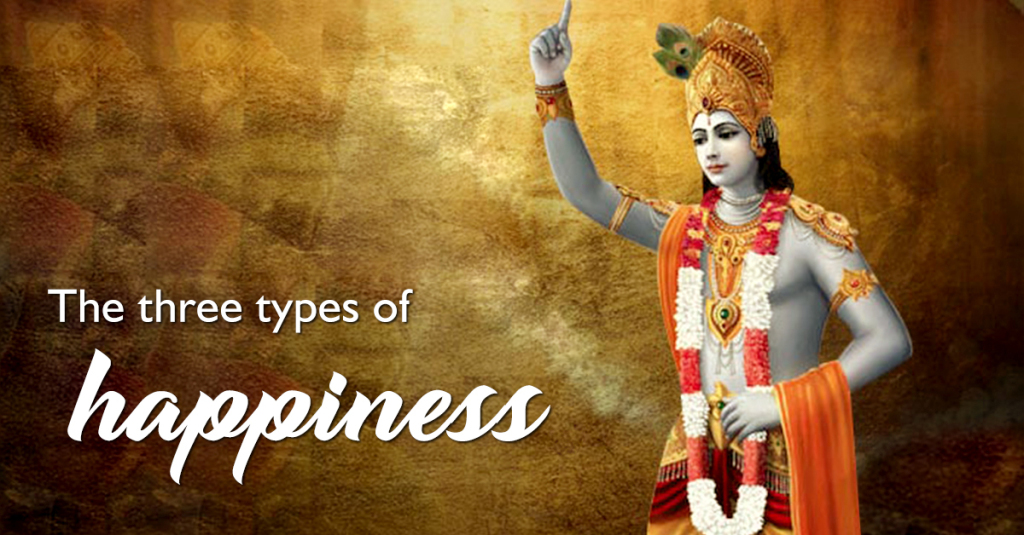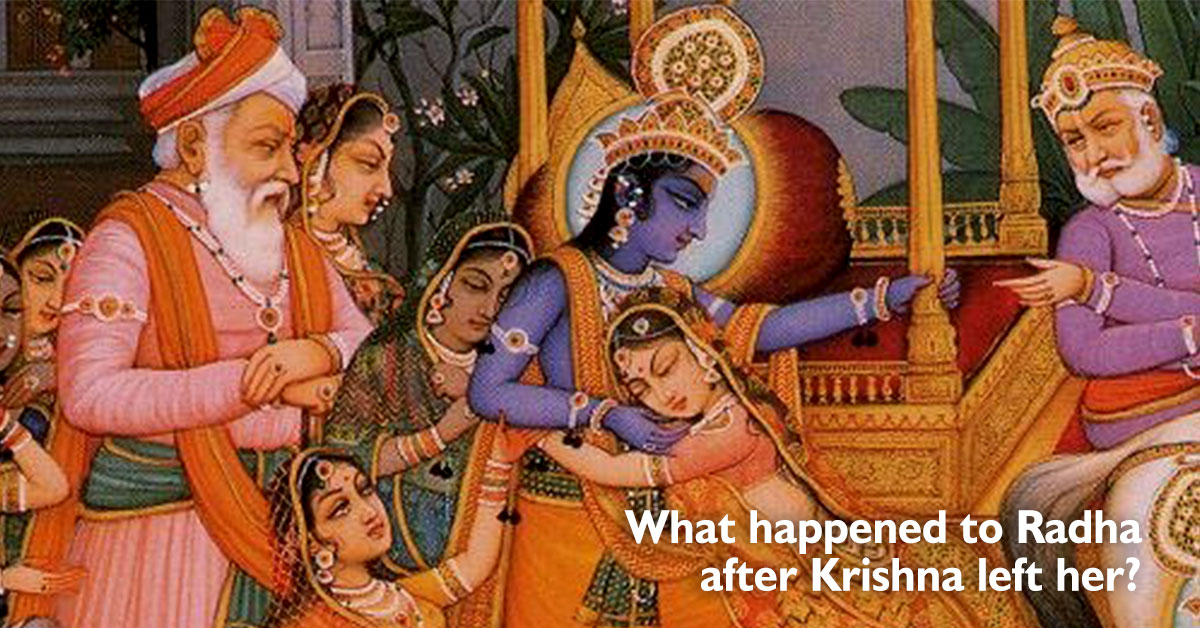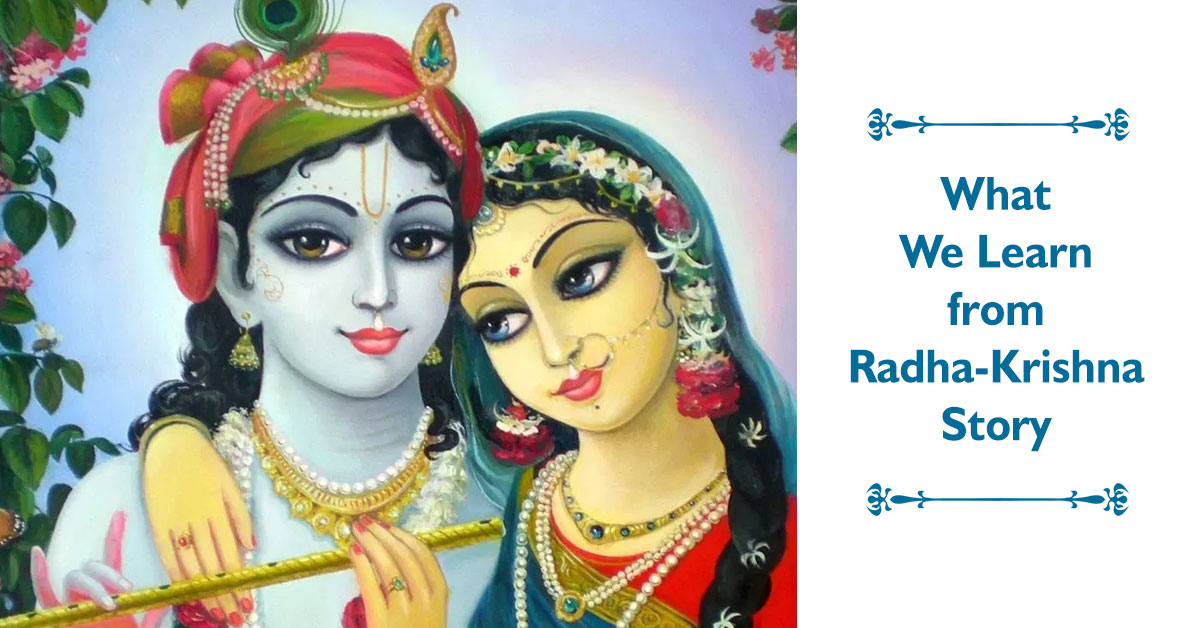What is the purpose of our life? What do we want to achieve? What is it that we crave for? It is happiness. We may be keen on performing certain actions and indulging in certain activities because those, we think, will make us happy. But, are we aware of the true meaning of happiness? Sri Krishna enlightens us about this elusive concept through his conversation with Arjun in Bhagavad Gita.
What is happiness?
We often associate happiness with a number of external factors. We often spend all our effort in the gratification of our senses. However, the happiness that is derived in this manner is only temporary happiness and becomes intertwined with cycles of sorrow. True happiness can only emanate from a peaceful mind that is not dependent on any external agents and remains unperturbed in every situation.
In Chapter II, Verse 70 of the Bhagavad Gita, Sri Krishna says,
“aapurya-manam achala-prathistham
samudram apah pravishanti yadvat
tadvat-kama yam pravishanti sarve
sa shantim-apnoti na kama-kaami”
Translation:
“As the waters (of different rivers) enters the Great Ocean, which though full on all sides remains undisturbed, like wise a person who is not disturbed by the incessant flow of desires – can alone achieve peace, and not the man who runs after these desires & strives to satisfy such desires.”
The three types of happiness
In Chapter 18, Verse 36 Sri Krishna says to Arjun,
“sukhaṁ tv idaniṁ tri-vidhaṁ shrinu me bharatarshabha
abhyasad ramate yatra duhkhantam cha nigachchhati”
Translation:
“And now hear from me, O Arjun, of the three kinds of happiness in which the embodied soul rejoices, and can even reach the end of all suffering.”
- Satvik or Pure happiness: It is the happiness that arises from the elevation of the soul. However, attaining this is not easy. One pursuing satvik or pure happiness has to practice a lot of discipline. That is why, it feels like poison in the beginning but nectar in the end.
“yat tad agre viham iva pariname mitopamam
tat sukham sattvikam proktam atma-buddhi-prasada-jam”
Translation:
“That which seems like poison at first, but tastes like nectar in the end, is said to be happiness in the mode of goodness. It is generated by the pure intellect that is situated in self-knowledge.”
Bhagavad Gita, Chapter 18, Verse 37
- Rajasik or result-oriented happiness: This is the materialistic pleasure that is derived when the senses come in contact with external objects that create a feeling of gratification. However, this kind of happiness is temporary.
“vishayendriya-sanyogad yat tad agre mritopamam
pariname visham iva tat sukham rajasam smritam”
Translation:
“Happiness is said to be in the mode of passion when it is derived from the contact of the senses with their objects. Such happiness is like nectar at first but poison at the end.”
Bhagavad Gita, Chapter 18, Verse 38
- Tamasic or slothful happiness: This is the lowest form of happiness and is derived from sleeping or being lazy. The soul is never nurtured through these practices yet since there is a tiny sense of pleasure associated with it, people wrongfully consider it to be a state of happiness.
“yad agre chanubandhe cha sukham mohanam atmanah
nidralasya-pramadottha tat tamasam udahritam”
Translation:
“That happiness which covers the nature of the self from beginning to end, and which is derived from sleep, indolence, and negligence, is said to be in the mode of ignorance.”
Bhagavad Gita, Chapter 18, Verse 39.
One can derive true happiness only by achieving a peaceful state of mind. Why not come to Vrindavan and immerse yourself in the thoughts of Sri Krishna? There is no greater happiness than the happiness one gets from being at peace with oneself and being one with god.
Radhe Radhe!













